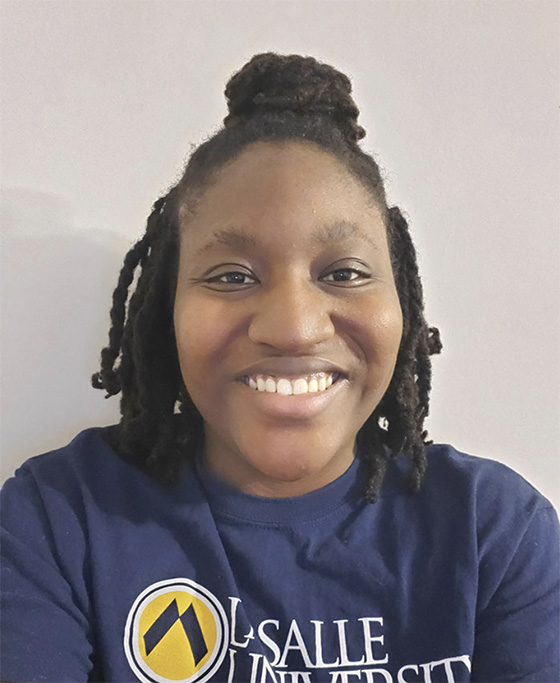The Intersections of Race and Dementia
As we continue our collaboration with community members in Hunting Park and Northwest Philadelphia through ARTZ in the Neighborhood, the particular experiences of brown and black people living with dementia are foremost in our hearts and minds. In this post, our guest blogger Sharnita Midgett — Clinical and Outreach Coordinator for the Penn Memory Center and an MPH candidate and LaSalle University doing her practicum with ARTZ Philadelphia in 2019-2020 — writes about the intersections of race and dementia.

Growing up, I did not know the word “Alzheimer’s.” For some people, it was because they were still developing their vocabulary and learning all the words they could. For me, learning the word “Alzheimer’s” would take me until my young adult years during a conversation that I had with my best friend about her grandmother.
For some people, the words “Alzheimer’s” “memory loss” or “dementia” are never said at all, even when they might be living with it. Often in my household, dementia was a condition that went unspoken or was described away, and my experience was one that I shared with many of those in my community.
I identify as many things: I am a black woman, I am a public health advocate, and I am a student of life. I have spent a lot of time studying the issues that impact my community, and I’ve heard many different diseases and disparities. Still, it was not until my recent work in the field of brain health research and dementia that I truly thought about dementia and the way it impacts those around me.
Research supported by the National Institute on Aging has found racial and ethnic differences in the risk of developing dementia. African Americans and Hispanics are more likely to develop dementia than their white counterparts, and some of the risk factors include poor cardiovascular health and low physical activity. High blood pressure and diabetes are included in these risk factors, and both are diseases that are more prevalent in communities of color. In my work, I have learned that these same communities are also largely underrepresented in brain aging research across the nation.
In my new role as a clinical and outreach coordinator for the Penn Memory Center, I made it a goal of mine to understand how different communities viewed dementia and how it has affected them.
In meeting and interviewing different people in the Penn Memory Center community, one African American woman discussed her memories of her great grandmother. She remembered her great grandmother being very quiet and staying to herself, which was very different from how she had been before. She noted that as an adult, she grew to believe that her great grandmother had a possible dementia. But at that time, topics like those were not discussed.
In discussing memory loss with one of my closest friends who is Peruvian, she noted that she was unsure of programs on memory loss and dementia that are given in Spanish. In fact, in the field of dementia research in Philadelphia, she said that Spanish speaking clinicians and research coordinators are very few. As researchers are facing the reality of research studies lacking diversity, they are also facing a lack of diverse clinicians and staff.
Last month, I went to meet with branch managers from libraries in West Philadelphia in hopes of setting up an event where I could speak to the community about dementia. In spreading awareness on dementia and the resources available, I hoped to mitigate some of the disparities that different communities are facing.
My aim at this meeting was to try and see if there may be people who are interested in hearing a talk about healthy brain aging and dementia. Many branch managers and friends of the West Philadelphia libraries showed a passion for the topic, agreeing to work hard to spread the word about the event and share it with as many people as possible. Their reason was that memory loss is something that is not talked about in many communities, although there is a strong need for the conversation.
Topics like- What is dementia? What can you do to maintain your health as you age? How to care for a loved one? What resources are available for caregivers? What research opportunities are available?- are important topics for all those living with dementia. It is my hope that we can work together to make these topics accessible for all to help those living with dementia and to create a future of diverse researchers in the field.
